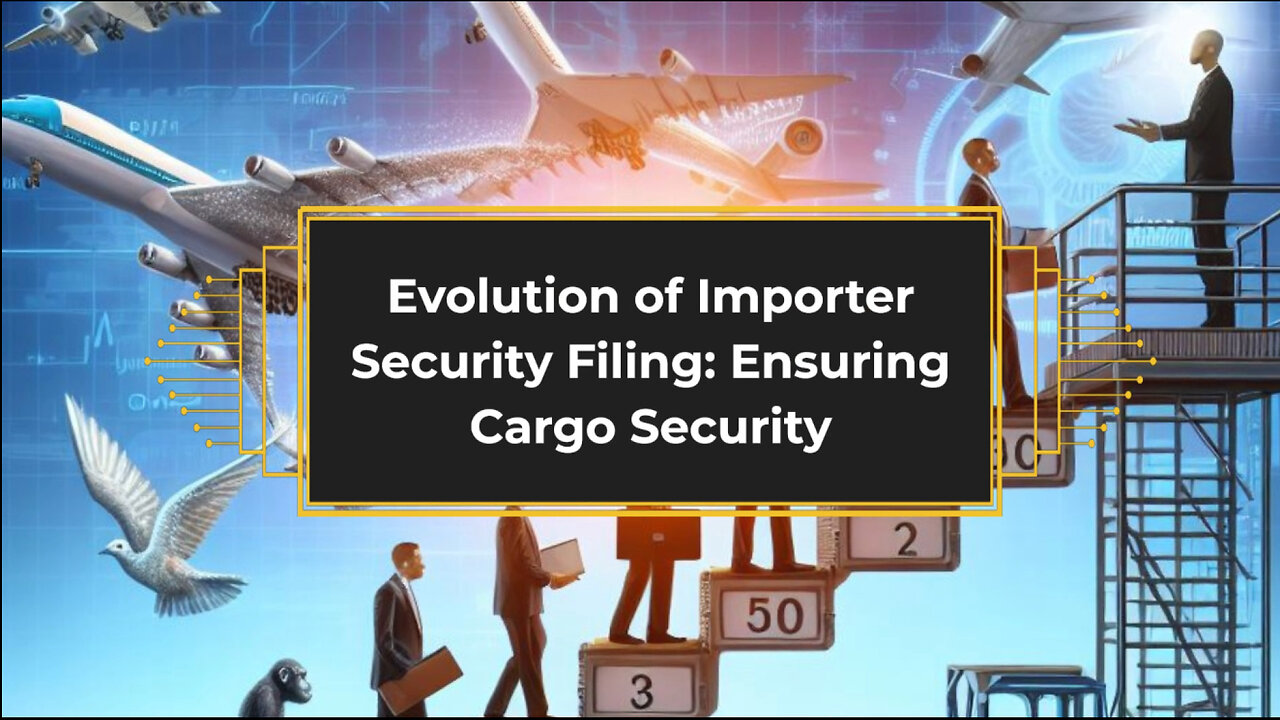Premium Only Content

Unlocking the Secrets: The Journey of Importer Security Filing Regulations
ISF Checklist || 805-970-7918 || [email protected] || www.isfchecklist.com
In today's episode, we discussed the evolution of Importer Security Filing (ISF) regulations and how they have changed over the years. The ISF regulation was implemented by US Customs and Border Protection (CBP) to enhance cargo security and requires importers to provide specific information about their shipments before they are loaded onto vessels bound for the United States.
The ISF regulation first came into effect in 2009 as part of the broader Customs Trade Partnership Against Terrorism (C-TPAT) program. Initially, importers were only required to submit basic information about the shipper, consignee, and goods being shipped. However, over time, the CBP realized the importance of gathering more comprehensive data for better cargo security and risk assessment.
In 2016, the CBP introduced a major change to the ISF regulations with the enforcement of the 10+2 rule. This rule required importers to submit ten additional data elements, and ocean carriers to submit two elements, at least 24 hours before the vessel's loading at the foreign port. The purpose of this rule was to improve supply chain security by identifying high-risk shipments and preventing potential threats from entering the United States.
Non-compliance with the ISF regulations can result in significant fines, shipment delays, and cargo holds by CBP. Therefore, it is crucial for importers to ensure compliance and accuracy in their ISF submissions. This is where customs brokers play a vital role. Customs brokers are experts in navigating the complexities of customs regulations and can help importers meet all the necessary requirements.
By partnering with a reputable customs broker, importers can mitigate risks, reduce delays, and ensure accurate and timely ISF filings. Customs brokers have the knowledge and expertise to guide importers through the ever-changing landscape of customs regulations, including ISF. Importers must stay ahead of the latest requirements to maintain compliance as CBP continues to enhance supply chain security.
Understanding the evolution of Importer Security Filing regulations is crucial for importers in the field of customs brokerage. It allows them to provide accurate guidance to their customers and ensure smooth compliance with the latest requirements. Stay tuned for our upcoming videos where we will explore more interesting topics related to customs brokerage and international trade.
#usimportbond
#isfcustomsbroker
#uscustomsclearing
#isfentry
Video Disclaimer Here: This video is purely educational and has no ties with the US government.
01:03 - The ISF regulation first came into effect on January 26, 2009, as a part of the broader Customs Trade Partnership Against Terrorism (C-TPAT) program.
02:05 - In 2016, a major change was introduced to the ISF regulations.
03:28 - As the ISF regulations continued to evolve, so did the penalties for non-compliance.
04:44 - Understanding the evolution of Importer Security Filing regulations is crucial for importers to stay ahead and comply with the latest requirements.
-
 1:18:28
1:18:28
HotZone
4 days agoJihadi Terror Rising: Have We Learned Anything Since 9/11?
973 -
 LIVE
LIVE
Sean Unpaved
2 hours agoFernando Mendoza Leads Indiana To Comeback WIN vs. Penn State! | UNPAVED
151 watching -
 1:40:57
1:40:57
Lara Logan
3 hours agoINJECTING TRUTH INTO THE VACCINE DEBATE with Del Bigtree | Ep 43 | Going Rogue with Lara Logan
6.79K4 -
 LIVE
LIVE
Side Scrollers Podcast
2 hours agoCraig PISSES Off The Internet + India/YouTuber CONTROVERSY + More | Side Scrollers
659 watching -
 1:12:08
1:12:08
Steven Crowder
4 hours agoDeport All Illegals | Change My Mind
295K637 -
 3:21:46
3:21:46
Viss
4 hours ago🔴LIVE - First Day on Arc Raiders - I Got Married!
12.5K1 -
 1:11:35
1:11:35
The Rubin Report
3 hours agoBill O’Reilly Makes Bill Maher Go Silent with Uncomfortable Facts
36.1K27 -
 1:44:12
1:44:12
The Mel K Show
3 hours agoMORNINGS WITH MEL K - The Dam is About to Break: Bring on the Indictments! 11-10-25
18.5K3 -
 DVR
DVR
The Shannon Joy Show
3 hours agoSJ Show 11/10 * Trump Floats $2K Stimmy Checks & 50 Year Mortgage * Too Big To Fail Tech Bailout Incoming * Live Exclusive With Market Analyst Jack Gamble
16.9K1 -
 56:51
56:51
Grant Stinchfield
2 hours ago $4.70 earnedMEDIA FRAUD EXPOSED! BBC Caught Twisting Trump’s J6 Speech!
28.1K4